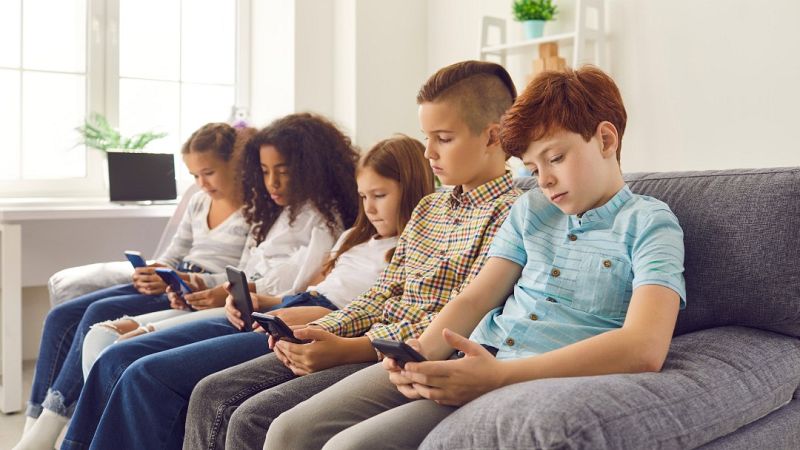The Impact of Early Smartphone Access on Children’s Mental Health
A recent global study has raised concerns about the effects of early smartphone access on children’s mental health. According to the research, children should not have access to smartphones until they are 13 years old. The findings suggest that those who use smartphones before this age are more likely to experience a range of negative outcomes, including suicidal thoughts, poor emotional regulation, lower self-worth, aggression, and a detachment from reality.
The study, published in the Journal of the Human Development and Capabilities, highlights that girls are more affected by smartphone use than boys. It found that 9.5% of female respondents were considered “struggling” with their mental health, compared to 7% of males. These results were consistent across different countries, indicating a global trend.
Key Findings of the Study
The research analyzed the self-reported mental health profiles of 100,000 young people aged 18-24. Conducted by Sapien Labs, a non-profit research organization, the study generated an overall “mind health” score for each participant based on 47 social, emotional, cognitive, and physical functions. The scores worsened as the duration of smartphone use increased.
For instance, the mind health score of a child who received a smartphone at 13 dropped significantly compared to those who got one at five years old. This suggests that earlier exposure to smartphones may have a more profound impact on mental well-being.
The study also found that younger users were more likely to experience sleep disruptions, cyberbullying, and negative family relationships. The results were particularly concerning for those aged 18-20, which could be attributed to prolonged screen exposure during the COVID-19 pandemic.
Recommendations for Regulation
Lead author Tara Thiagarajan emphasized the need for stricter regulations on smartphone use for children under 13. She suggested that smartphones should be treated like alcohol and tobacco, with government authorities imposing restrictions. This approach should include regulating social media platforms, mandating digital literacy education, and enforcing corporate accountability.
Thiagarajan expressed surprise at the strength of the results but noted that it makes sense given the vulnerability of young minds. “The younger developing mind is more compromised by the online environment, given their lack of worldly experience,” she explained.
Current Regulations on Cellphone Use
Several European countries have already implemented bans or restrictions on cellphone use in schools. These include France, the Netherlands, the UK, Italy, Hungary, Spain, Ireland, Sweden, Belgium, Greece, Latvia, Luxembourg, and Finland. Some of these countries have complete school-wide bans, preventing mobile phone use at any time during the day.
Other nations, such as Denmark, Cyprus, Bulgaria, and Portugal, are considering further restrictions on cellphones. In addition, Finland has introduced measures to limit smartphone use during school hours.
Social Media Regulations
In terms of social media, France’s AI minister proposed a European-wide ban on social media use for those under 15. Several EU laws, including the Digital Service Act, the Audiovisual Media Services Directive, and the General Data Protection Regulation, already include provisions to protect children from harmful content and ensure data privacy.
Recently, EU lawmakers voted to criminalize AI-generated child abuse images, online grooming, livestreaming, sextortion, and the age of consent. These measures reflect growing efforts to safeguard children in the digital age.
Conclusion
The findings of this study underscore the importance of limiting early access to smartphones and implementing robust regulations to protect children’s mental health. As technology continues to evolve, it is crucial for governments, educators, and parents to work together to create a safer digital environment for young people.






